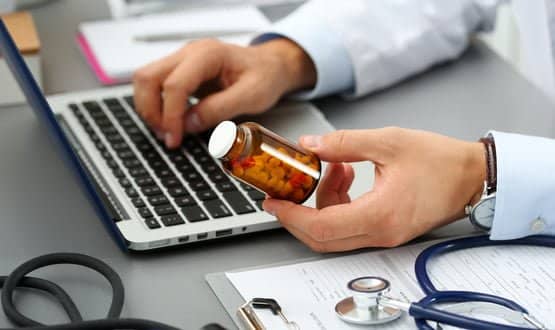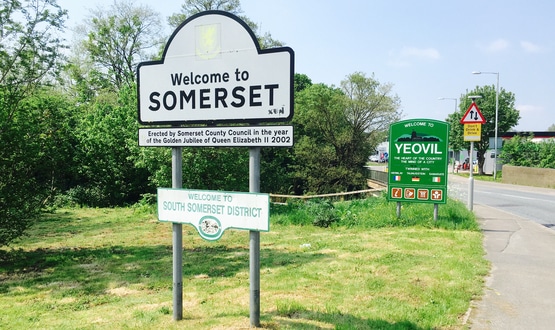Electronic prescription service to include controlled medication
- 12 March 2019

Pharmacies in England will now be able to dispense controlled drugs via the Electronic Prescription Service (EPS) following a successful trial.
The decision means patients will be able to have their prescriptions sent electronically from their GP to their pharmacy, rather than having to carry a paper copy.
Schedule 2 and 3 controlled drugs, excluding oral liquid methadone, will now be available electronically.
More than 90% of GP practices and pharmacies are already live with the EPS, but until now controlled drugs like morphine or pethidine were not included on the system.
Pharmacies should expect to see an increase in electronic prescriptions rather than paper forms, NHS Digital said.
The functionality of prescribing these drugs over the EPS has been successfully trialled across 64 GP practices in England since pilots began in October last year.
Dr Vishen Ramkisson, senior clinical lead for digital medicines and pharmacy at NHS Digital, said: “This will make a particular difference to those who need controlled drugs the most, such as those nearing end of life who use this medication to manage pain and control unpleasant symptoms.
“More efficient processes and fewer visits to drop-off paper prescriptions will help make sure these patients can be more comfortable. It will mean a better experience for patients and more efficient services for dispensers and prescribers.
“The pilot has completed with excellent results, making us confident to roll out the process nationally.”
The rollout began on February 28 for TPP SystemOne users and March 5 for Vision GP practices.
Vision was among the GP systems that took part in the pilot of the controlled drugs EPS, starting in October 2018.
NHS Digital expects the rollout, which will be conducted by local Clinical Commissioning Groups (CCGs), will take around one and a half weeks.
NHSD currently are working with EMIS to confirm rollout plans for EMIS Web users and provider Microtest expects to be ready to pilot the EPS with its Evolution system this month.
The EPS has already gone live across urgent care settings, meaning patients seeking treatment from participating walk-in clinics, minor injuries units and NHS 111 can have their prescriptions sent electronically to a pharmacy.
It comes after a Healthwatch England report found while people want to be able to order prescriptions online, “feedback on digital interactions with the NHS suggests problems with online orders are common”.
“In particular, when it results in the wrong dosage being issued or new drugs conflicting with existing medications, people have questioned whether the NHS can deliver on more advanced services,” the report found.
“To prevent confidence in an integrated and modern NHS being undermined, it is important to ensure good customer service around access to medications,” it concluded.
Responding to the report an NHS England spokesman said: “The new Local Health and Care Records being introduced in five areas of the country will ensure both GP and hospital staff can access the information they need, from patient histories to previous test results to prescriptions, and will not only improve the individual care we are able to offer but in some instances could save lives.
“As set out in the NHS Long Term Plan we aim for the whole of England to be covered by a Local health and Care Record by 2024.”




